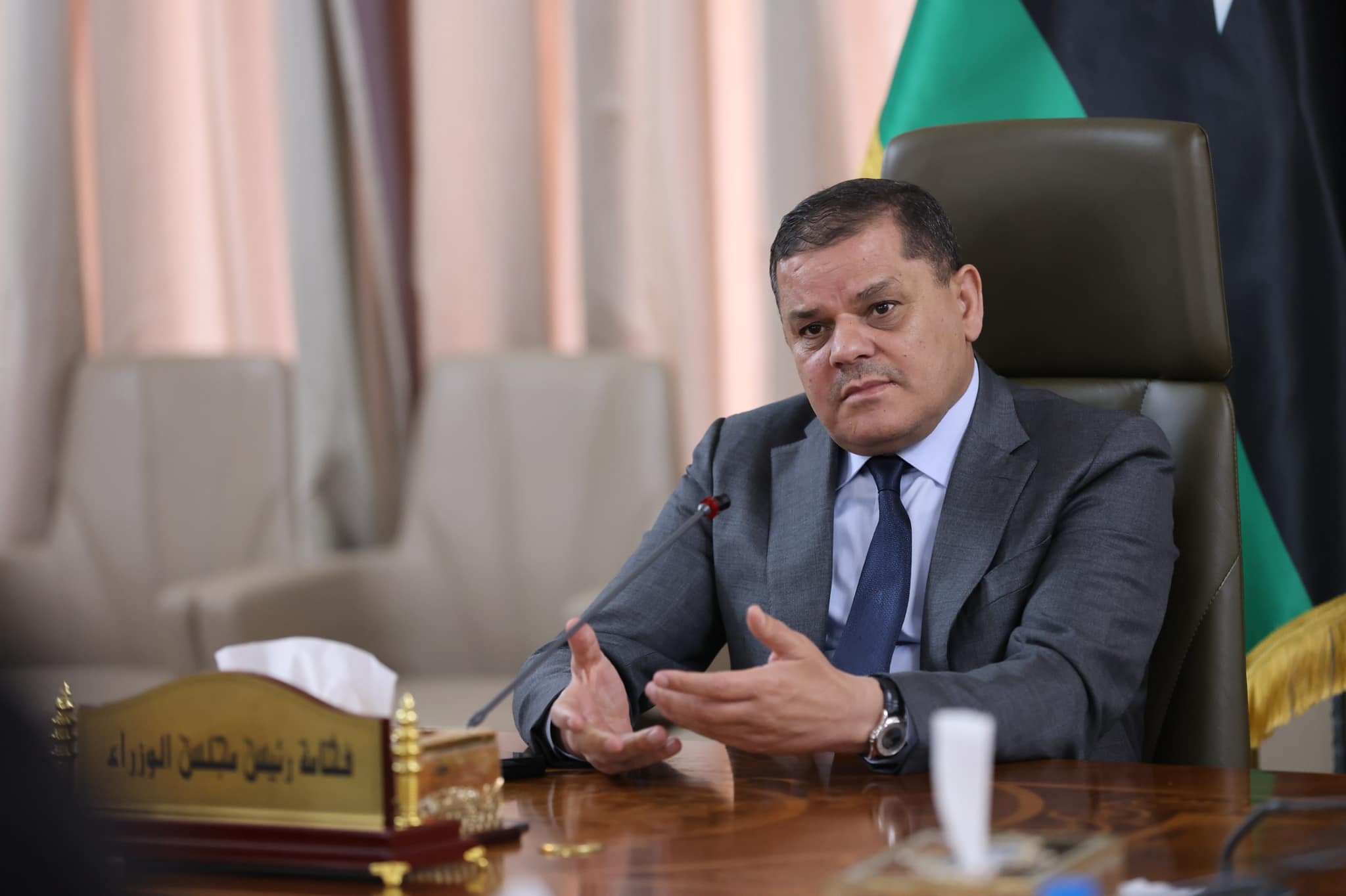The unity government comments on the Central Bank's statement: "Parallel spending" is a direct cause of the erosion of the dinar's value.
Pulbished on:
Tripoli, April 6, 2025 (LANA) - The Government of National Unity (GNU) attributed the direct cause of the erosion of the value of the Libyan dinar, the rise in prices, and the deterioration of citizens' purchasing power to the spending of the government assigned by the House of Representatives, amounting to 59 billion dinars.
This came in response by the GNU to a report issued by the Central Bank of Libya (CBL) on Sunday, which painted a bleak picture of the financial situation of the Libyan state. The report warned of future risks and current financial and economic challenges if the absence of any prospects for unifying dual spending between the two governments continues. This would increase pressure on the economy and affect the stability of the exchange rate.
The CBL confirmed in its report that the governmental division within state institutions and ministries contributed to inconsistent decisions between the two governments, weakening the CBL's ability to implement effective monetary policy.
The GNU said in a statement that the spending of the government assigned by the House of Representatives, amounting to 59 billion Libyan dinars, was implemented outside of official financial arrangements, a direct cause of the erosion of the value of the Libyan dinar, the rise in prices, and the deterioration of citizens' purchasing power.
The statement considered that spending this amount of money outside the oversight of the state and its sovereign institutions not only constitutes a violation of legal procedures, but also places an unjustified burden on the general budget and public debt, directly impacting the livelihood of Libyan citizens through inflation, weak purchasing power, and financial instability.
According to the statement, the "parallel government" spending, amounting to 59 billion dinars, represents five times the 12 billion dinars allocated by the Government of National Unity to implement development projects distributed across all Libyan cities and regions, east, west, and south.
The Government of National Unity explained that of the official spending of 123.2 billion dinars, 54.9% of it was allocated to salaries across Libya, amounting to 67.618 billion dinars, while 6.3% was spent on the second section, amounting to 7.741 billion dinars, which was spent on operating expenses for ministries and public institutions.
She added that 12 billion dinars were spent from the third chapter, allocated for development, on projects distributed across all Libyan cities and regions. These included the maintenance and expansion of the coastal road, the construction of schools and the development of educational facilities, the provision of sovereign passports and raw materials, the construction of new airports and the modernization of existing runways, the maintenance and expansion of roads in the south and the western mountains, the implementation of water supply projects and the improvement of water services in needy areas, and the provision of textbooks for all educational levels.
Regarding the fourth chapter, which concerns support, the Government of National Unity stated that spending on it amounted to 16 billion dinars, including a grant for spouses and children, basic pension support, fuel, electricity, and the supply of medicine.
The Government of National Unity's expenditures, according to the statement, also included an exceptional budget for central projects amounting to 9.776 billion dinars, of which 6.67 billion dinars were allocated to the National Oil Corporation and 3.1 billion to the General Electricity Company.
The government added that official government spending is implemented for the benefit of all Libyan citizens and includes all regions without exception. Any effort undertaken outside the approved arrangements deprives the people of their right to transparency and accountability and harms the national interest.
The government considered what it described as "parallel spending" managed outside official frameworks to be a threat to the unity of the state and undermines development opportunities and oversight. It reiterated its call for unified approaches and action under the umbrella of the state to ensure fair distribution and enhance opportunities for development and stability throughout Libya.
It noted that this spending has caused direct and serious damage to the national economy and exacerbated the balance of payments deficit due to a significant increase in demand for foreign currency outside official channels. This has depleted the state's foreign currency reserves, resulting in a deficit of $9.8 billion and an additional demand of $4.4 billion, weakening the Central Bank's ability to intervene to protect the dinar.
The Government of National Unity also affirmed that it had not incurred any public debt throughout its tenure, noting that what the Central Bank of Libya's report referred to as "the public debt of the western region" was accumulated by previous governments. It argued that spending outside official arrangements had led to an increase in the domestic public debt, reaching 270 billion dinars, with expectations that it would exceed 330 billion dinars by the end of 2025.
The government considered this level of debt to pose a serious threat to financial sustainability and impose unjustified additional burdens on future generations, due to "uncontrolled and irresponsible" spending policies. It also led to an imbalance in the exchange market and increased fears of a loss of confidence in the national currency, which was directly reflected in rising prices for basic goods and services and a decline in the purchasing power of Libyan citizens.
..(LANA)




